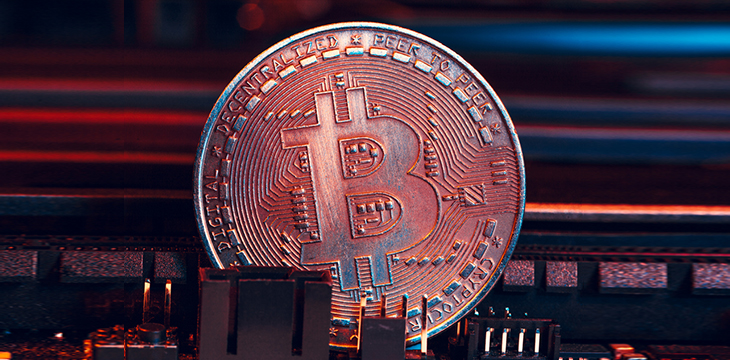
|
Getting your Trinity Audio player ready... |
“The key aspect of the network in Bitcoin is, I believe, using economic factors, that we can have a peer to peer distributed system where people compete and because of the competition, because of the openness, because of the game theoretic nature of the system, that it’s going to work. That’s what it’s about.” –Dr. Craig Wright
This quote was my number one takeaway from the third video of Ryan X. Charles’s “Theory of Bitcoin: The Bitcoin Whitepaper” series with Dr. Craig Wright, during which the pair discuss the inner workings of the Bitcoin whitepaper’s second paragraph. This quote is what it all boils down to. Throughout the video one, two and three, Dr. Wright reveals a number of points that support the above and I suspect this will be a continuous theme throughout the whole ToB whitepaper series.
Join me as I share the rest of my takeaways from video three and continue on with my Bitcoin education journey, all through the eyes of a long time gambling industry professional.
Bitcoin is an electronic payment system
This is something we’ve heard Dr. Wright say before in this series, and it’s a statement that separates Bitcoin from the “crypto-mania” we are constantly bombarded with. Bitcoin was not built to be a store of value, it was built to be an electronic payment system. “We need individuals to transact the same as if they were using cash,” Dr. Wright said.
We do not even need the internet to transact in Bitcoin. Customers who are offline can sign a transaction with their private key, give the merchant the signed transaction directly by using technology such as Near Frequency Technology and the merchant can broadcast the transaction to the miners to be sure the money has not been double spent. This whole process is completely secure for the customer. Once they get back online, the transaction will be updated, similar to how our emails come through as soon as we get online.
It’s more than just money
Bitcoin transactions are not limited to money. One peer can exchange directly with another in many ways—a direct exchange of keys, a direct exchange of identity, sending info that’s not put on the blockchain, all of these are possible. These types of exchanges are also possible via Bitcoin wallets such as Money Button, Centbee and HandCash.
It’s possible to semi-automate the process, for example requiring an answer to be provided by a certain date in order for x amount of money to be sent, paying for a portion of the cost up front and paying the rest after receiving the goods and so on. Users can directly communicate, exchange data, invoices, purchase orders, and sign them even.
Imagine the possibilities this brings to the iGaming affiliate world, for example—take a cost-per-acquisition (CPA) deal with a $50 minimum deposit—payment automatically goes out from the operator to the affiliate once the referred player reaches the $50 minimum.
Impractical to reverse transactions
With Bitcoin, transactions are computationally impractical to reverse and this protects sellers, merchants, iGaming operators, you name it, from fraud. Once a buyer sends money to a merchant, the money is now in the merchant’s envelope, sealed by the merchant’s key. The buyer cannot reverse that process, there is absolutely no possibility for fraud or chargebacks.
Once a transaction has been recorded on the blockchain, you cannot simply re-write the blockchain to reverse a transaction or change it. You’d have go back to the block in which the transaction was confirmed and erase all the coinbase rewards, miner fees, coins that were spent by miners, etc, since that block. You can’t re-allocate those fees. The whole chain would unravel.
It is impractical for miners to commit a crime on the blockchain. There’s a huge investment required to be a miner, the equipment and electricity needed to achieve optimal computational power (CPU) and so on. In order to make crime worth the risk, a miner would have to quickly get away with HUGE amounts of money to cover their initial investment, plus they would have committed a computer crime and could go to prison.
Competition is key
Competition is key for this system to work and this is how Dr. Wright designed it. Miners big and small have an ability to earn with a unilateral contract, they simply turn up and start competing. Miners want to balance their CPU, they want to balance the hashing, they want to balance the network—if this is done right, they can become profitable.
The competition piece is all about investing in CPU, this is what processes transactions. Being profitable is not about the block rewards which will reduce over time, it’s about the transaction fees which when added together, will grow over time with increased transactions and big blocks which can include huge numbers of transactions.
If a miner gets taken out for breaking the rules or whatever reason, even a big miner, the network self-heals. Now there’s 100% of the reward with less miners, the same zero sum game but with less players. The remaining miners will earn more profits and according to Dr. Wright, economics tells us when we have profits, it’s a signal—others will come to the network because there is excessive profit to be made. The miner who disappeared from the network will be quickly replaced.
Bitcoin is an economic system
And this brings us back to my top takeaway from video three. Think of Bitcoin as more of an economically viable system than a crypto system. A capitalist economic system.
In addition to competition for profit, Dr. Wright points out that if you know you can get caught, you act in a different way than if you don’t think you can get caught. Malicious miners in Bitcoin will get caught and they know this. Everyone is aware of who the big miners are and hashes are public—it’s obvious if someone (a miner) has committed fraud. It is not economically viable to commit fraud and therefore the system is secure.

 11-22-2024
11-22-2024


